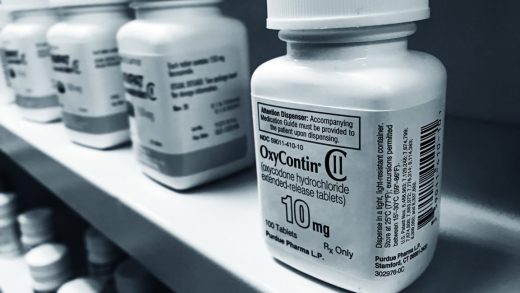Purdue Pharma bankruptcy would follow a long and shady corporate tradition
Purdue Pharma, the embattled drugmaker behind OxyContin, is reportedly considering bankruptcy protection as it faces some 2,000 lawsuits over allegations that it contributed to America’s deadly opioid crisis, CNBC reports. While that may sound extreme, it would actually follow a long tradition of corporations turning to bankruptcy courts as a means of escaping legal peril caused by their own purported misdeeds.
As litigants make their cases that Purdue and its owners, the Sackler family, misled doctors and patients about risks associated with prolonged use of its prescription opioids—and knew that the drugs were being misused—the company’s liabilities are mounting. Even President Trump has said he would like to sue drug companies over the nation’s opioid crisis. If he did, he would join several states and several Native American tribes in suing Purdue.
While Purdue has claimed the lawsuits against it are “baseless,” it’s easy to understand why it would consider bankruptcy protection, which is now a time-honored trick of the corporate trade. That’s what asbestos maker Johns Manville did in 1982 after it was discovered that its product caused mesothelioma, a unique form of cancer found in many people who came in close contact with the fire retardant. A.H. Robins followed Manville’s example when its Dalkon Shield IUD maimed or killed thousands of women around the world by wicking bacteria in to their uteruses, causing infertility, ectopic pregnancies, and death. It faced 6,000 lawsuits when it filed for bankruptcy protection.
Those two cases helped redefine bankruptcy, transforming it from a way out of debt, to a form of protection that will ensure the corporations can go on even in the face of thousands of lawsuits and victims demanding compensation. They file for Chapter 11, reorganize, pay off their debts, and go on with their business. A. H. Robins was acquired by American Home Products, which is still in business as Wyeth Pharmaceuticals. As the New York Times put it back in 1985, it allows corporations to be “essentially treated as though they were in bankruptcy, when in reality they were not.” Plus, under federal bankruptcy law, depositions and discovery in lawsuits are halted so corporations can focus their attention and assets elsewhere.
It may be a clever business trick, but it’s a potentially devastating one for victims. If a corporation declares Chapter 11 bankruptcy, the company is reorganized and its debts are categorized and paid back as the court sees fit. Typically, plaintiffs in class-action lawsuits, or those fighting their way through the court system alone, are put in the category of “unsecured debts” and must wait in line behind other debtors. In the past, courts have worked with insurance companies to set up trusts to pay out to victims.
Proponents of this use of the bankruptcy court argue that it allows corporations to pool their money to compensate victims, who under bankruptcy rules are forced to wait in line for their payout. It’s orderly and allows other victims to come forward, as the court typically puts out a call for victims through advertising campaigns, and the whole process is overseen by a federal judge.
The problem lies in the fact that while each victim may get some relief or restitution from the court, usually it’s not as much as what they would get if they took the corporation in front of a jury. Which is exactly the point: Corporations don’t want to risk a jury giving, say, $700 million to a cancer victim who used talcum powder every day. Settlements like that could quickly drive them into Chapter 7 bankruptcy, which is the kind where they have to liquidate their assets and potentially cease to exist. That’s why corporations cut victims off at the pass, so to speak, and file for Chapter 11, where the court will take a stoic, logical approach to paying out claims based on dollars and cents, not emotional pleas for the damage done to them.
Lots of companies are doing it these days: USA Gymnastics recently filed for bankruptcy in a bid to stop to litigation brought by sexual-abuse victims of Larry Nassar, the team’s longtime doctor. In the wake of the devastating and deadly wildfires in California, both PG&E Corp. and Pacific Gas and Electric Co. filed for Chapter 11 bankruptcy as lawsuits alleged that they were responsible for the blaze. Even Catholic dioceses and religious orders have used Chapter 11 to negotiate payouts to thousands of victims. But just because everybody is doing it, doesn’t make it right.
Reached for comment, a Purdue spokesperson issued the following statement:
“As a privately-held company, it has been Purdue Pharma’s longstanding policy not to comment on our financial or legal strategy. We are, however, committed to ensuring that our business remains strong and sustainable. We have ample liquidity and remain committed to meeting our obligations to the patients who benefit from our medicines, our suppliers and other business partners.”
(28)



